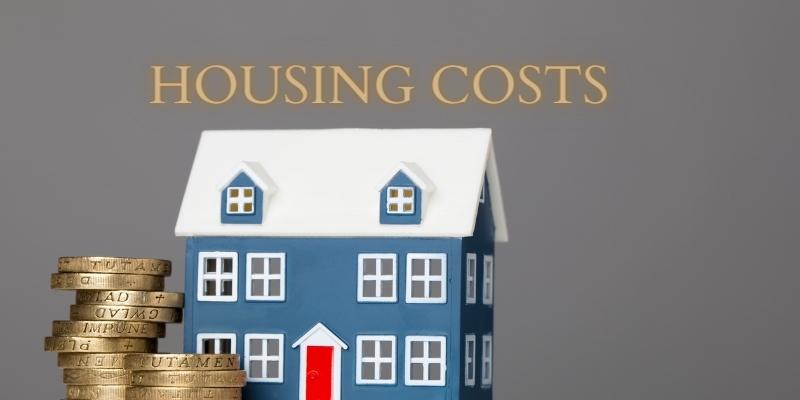The Pros and Cons of Making Biweekly Mortgage Payments
Do you wish to wipe off your loans more quickly and with less interest? One essential possibility is making bi-monthly loan repayments because doing so has several advantages. But in an improper situation, it might be ineffective or even costly to you. So, monthly or biweekly payments, which is preferable? It will all be explained to you in this essay.
What is a biweekly payout?
If you have a loan, you could choose to pay it off sooner. A biweekly (every two weeks) installment schedule is one choice to consider.
Biweekly loan repayments are divided into 26 equal half installments for 13 years. It may be a suitable alternative for those who wish to increase their mortgage payment without needing to make a big financial commitment.

How are property installments made every two weeks?
A mortgage installment is due on the first day of each month. It comprises principle payback, interests, and a supplementary sum if you're paying real estate taxes, homeowners coverage, mortgage premiums, and HOA dues into a deferral account.
The preponderance of each installment you make as you start repaying your loan goes to interest; as a result, your creditor earns a significant amount of money while you scarcely make a dent in the capital.
For instance, a 30-year debt with $1,500 monthly installments entails an annual mortgage repayment of $18,000. By contrast, if you choose a biweekly payment schedule, you'll make 26 installments totaling $750, or $19500 per year.
Pros and Cons of Biweekly Mortgage Payments
Making biweekly loan repayments offers the allure of spending less on interest and clearing off debt sooner. But if you don't know how to deal with the drawbacks, your strategy could not go as well as you hoped.
Pros
• Increase assets
The ability to generate assets is one factor that makes homeownership so alluring to numerous individuals. Your financial investment in your home is known as equity. Making more loan repayments is one of the techniques to increase equity more quickly—the amount of equity you own in your home increases with the mortgage payments you've made. You'll acquire equity relatively and efficiently if you pay extra annually.
• Pay off your mortgage sooner
Another reason for considering Biweekly payments is that it helps you pay your mortgage payment faster. The faster you pay, the sooner you will be free of mortgage.
• Prompt Budgeting
Possessing a biweekly mortgage repayment may simplify budgeting if you are salaried biweekly. You won't need to be concerned about adjusting your two payments if you always receive the same quantity flowing toward your loan out of each payday.
• You could save money on interest
Your creditor can let you apply for additional annual mortgage payments straight to the principle of your debt. If so, you will be able to repay the principal more quickly; this might result in annual interest cash reserves of thousands of dollars. Pro tip: Use the money you've saved from interest payments to start a retirement fund.
Cons
• Increased housing costs

Mortgage installments that are due more frequently entail fewer funds for other expenses. Your revenue might be better spent on retirement funds, debt repayment, or even a trip to see family.
• There can be a set-up charge.
You might be required to submit a set-up charge to specific lending organizations to join a biweekly mortgage repayment schedule. Furthermore, every transaction could come with a cost (mortgage payment). Some organizations do provide this service without charge. However, confirming with the bank that handles your mortgage is wise.
• It's a Long-Term Contract.
You commit to making repayments biweekly when you enroll in a mortgage payment plan. Month-to-month switching is not permitted. Therefore, you shouldn't adhere to this kind of repayment schedule if you'd prefer not to make a legally binding promise to pay more.
Biweekly vs. monthly payments
Most individuals use mortgage loans to purchase houses, and they submit monthly installments. The convenience of making installments on the same day every month makes this once-per-month option popular. This makes remembering when your payments are simple. Lots of people choose automated mortgage installments for even greater convenience. These make timely payment simple and demand little effort.
Although monthly repayments make budgeting easy, they are not necessarily the most excellent option for paying off your mortgage more quickly. Throughout your mortgage, you'll pay higher interest than biweekly installments. This is true whether your loan rate is low, fixed, or flexible. While making 12 installments a year might be convenient, you can pay more than necessary for your home.
You are taking advantage of the yearlong calendar by choosing to schedule biweekly payments rather than monthly installments. You will make 26 repayments yearly instead of 12 if you submit repayments every two weeks. With this strategy, you pay an extra month annually, even if each installment is equivalent to half of the monthly sum. You'll repay every two weeks once you choose to pay biweekly installments. If you were paying $1,400 monthly, you would now pay $700 every two weeks. As a result of certain months being lengthier than others, you'll add a mortgage contribution to your annual mortgage payment. That comes to 13 monthly payments per year, or $18,200.
Similar to how you pay off your principal more quickly than you might with a periodic payment method by making an additional payment per year. Because the installments will be stretched out over the entire year, you won't notice a negative financial consequence even though you would be making an additional payment. Although one more payment annually may not be a big concern, biweekly payments are still much preferable to monthly ones.
Summarizing
The statement suggesting biweekly payments enable you to reduce your interest rates while also paying off your mortgages more quickly is accurate. Therefore, it may be advisable to consider biweekly payments instead of monthly ones. However, one should equally check for the disadvantages of paying bi-monthly before deciding.


